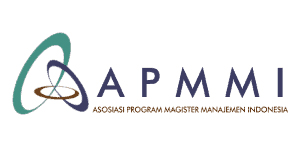Analysis of Indonesia's Non-Oil and Gas Export Potential with Non- Traditional Countries
DOI:
https://doi.org/10.30996/jmm17.v11i2.11736Abstract
This study aims to test the hypothesis regarding the effect of HRM Practices, Positive Emotions, and Knowledge Management on Employee Engagement, as well as the effect of Employee Engagement on Talent Retention in the Oil and Gas industry in Indonesia. This study uses a causal relationship model with a cross-sectional data method. It involves employees from PT Donggi Senoro LNG (DSLNG), JGC Indonesia (JIND), JOB Pertamina Medco E&P Tomori Sulawesi (JOB Group), and other Oil and Gas companies. Data was collected through questionnaires distributed via WhatsApp and Instagram using a purposive sampling technique. Data testing was carried out with validity and reliability tests, and analyzed using Structural Equation Modeling (SEM) with the AMOS application. The results showed that HRM Practices had no positive effect on Employee Engagement. However, Positive Emotions and Knowledge Management have a positive effect on Employee Engagement. In addition, Employee Engagement has a positive effect on Talent Retention. Thus, it can be concluded that Positive Emotions and Knowledge Management play an important role in increasing Employee Engagement, which in turn increases Talent Retention in the Oil and Gas industry in Indonesia.
Downloads
Downloads
Published
How to Cite
Issue
Section
License
Authors who publish to JMM17: Jurnal Ilmu Ekonomi Dan Manajemen agree to the following terms:
- Authors transfer the copyright and grant the journal right of first publication with the work simultaneously licensed under a Creative Commons Attribution-ShareAlike 4.0 International License.. that allows others to share the work with an acknowledgement of the work's authorship and initial publication in this journal.
- Authors are able to enter into separate, additional contractual arrangements for the non-exclusive distribution of the journal's published version of the work (e.g., post it to an institutional repository or publish it in a book), with an acknowledgement of its initial publication in this journal.
- Authors are permitted and encouraged to post their work online (e.g., in institutional repositories or on their website) prior to and during the submission process, as it can lead to productive exchanges, as well as earlier and greater citation of published work (See The Effect of Open Access)












